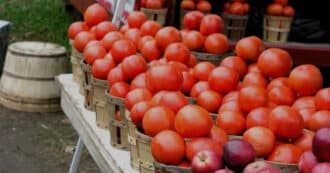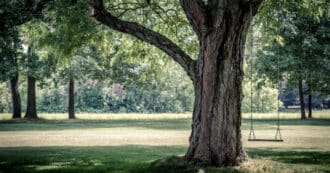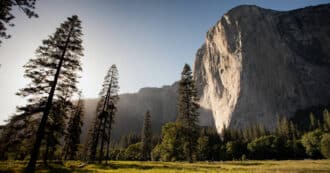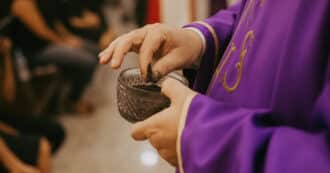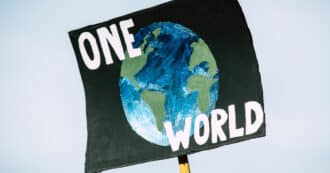The Rev. Dr. Leah D. Schade; leahschade@gmail.com
So now, Israel, give heed to the statutes and ordinances that I am teaching you to observe, so that you may live to enter and occupy the land that the LORD, the God of your ancestors, is giving you. 2You must neither add anything to what I command you nor take away anything from it, but keep the commandments of the LORD your God with which I am charging you. . . .6You must observe them diligently, for this will show your wisdom and discernment to the peoples, who, when they hear all these statutes, will say, “Surely this great nation is a wise and discerning people!” 7For what other great nation has a god so near to it as the LORD our God is whenever we call to him? 8And what other great nation has statutes and ordinances as just as this entire law that I am setting before you today? 9But take care and watch yourselves closely, so as neither to forget the things that your eyes have seen nor to let them slip from your mind all the days of your life; make them known to your children and your children’s children—
Focus on v. 9: “But take care and watch yourselves closely, so as neither to forget the things that your eyes have seen nor to let them slip from your mind all the days of your life; make them known to your children and your children’s children.”
Eco-Exegesis
Eco-exegesis is a method of interpreting the biblical text through a green lens using the principles of ecological theology. For this passage, we turn to the Eco Bible, a Jewish ecological commentary on the Hebrew texts.
In the Eco-Bible, Rabbi Akiva Gersh explains that “watch yourself closely” means to protect one’s life from dangers as well as from those things that damage one’s body but are not lethal. Today we understand this as the “precautionary principle” which means taking preventative action in the face of uncertainty.
Applied to our current eco-crisis, we can say that the as the Bible calls us to turn from those things that harm our bodies and the environment, we can apply that to include turning away from poisonous chemical pesticides. As Rabbi Gersh explains, “God cares a great deal about how we treat our bodies, about how we grow our food, and about the kind of food we choose to eat. Through our modern-day application of this ancient wisdom, we have the ability to transform ourselves and the world into greater and stronger vessels to help further the process of universal redemption.”1
1. Eco-Idea
The Eco-Idea is one succinct statement that tells us who God is and/or what God does in relation to Creation and how we should respond as people of faith.
Because God commands us to “watch ourselves closely” and make our witness known to the rising generation, our congregation’s support of organic local farms will emphasize
God’s care for our bodies, our community, and the whole Creation.
2. Eco-Questions
Eco-Questions are what we can ask to help a congregation draw out the implications of the Eco-Exegesis and Eco-Idea.
- The agriculture industry now pumps over 1.1 billion pounds of pesticides into American farms, soils, and waters every year. (Source: U.S. Department of Agriculture, Economic Research Service, Agricultural Resources and Environmental Indicators, 2019, Daniel Hellerstein, Dennis Vilorio, and Marc Ribaudo eds., EIB-208, Washington D.C.: GSDA, 2019, (https://www.ers.usda.gov/webdocs/publications/93026/eib-208.pdf). We know that pesticides have had some benefits, from reducing insect damage of crops to increasing food production. But there are trade-offs, including adverse effects on water quality and human health, including increased incidences of cancer. How do we decide what is truly “taking care” and “watching ourselves closely”? What is the church’s role in mediating that conversation?
- What are the names of the organic farms closest to the church? What is their philosophy about their agricultural practices? How does their vocation as farmers exemplify “taking care” and “watching ourselves closely”?
3. Eco-Actions
Eco-Actions are ways that a congregation might respond to the Eco-Idea and Eco-Questions. One of these possibilities may have salience for your ministry context.
- Invite local organic farmers to sell their produce on the church property.
Ask them to offer educational workshops in exchange for free use of the church’s space to sell their products. - Take a field trip to a local organic farm with adults, youth, and children.
Go on a “taking care” scavenger hunt to identify the ways they see the farm protecting the health of human bodies, animal bodies, and Earth itself. - If your congregation celebrates communion, preach about the importance of using organic wheat for the bread and organic grapes for the wine/juice.
When we take in these elements of communion, we are ingesting what Creation (and thus God) is giving us. How can we protect the purity of the sacrament through our advocacy and activism?
1 Eco Bible: Volume Two: An Ecological Commentary on Leviticus, Numbers, and Deuteronomy, by Rabbi Yonatan Neril and Rabbi Leo Dee, The Interfaith Center for Sustainable Development, 2021.

